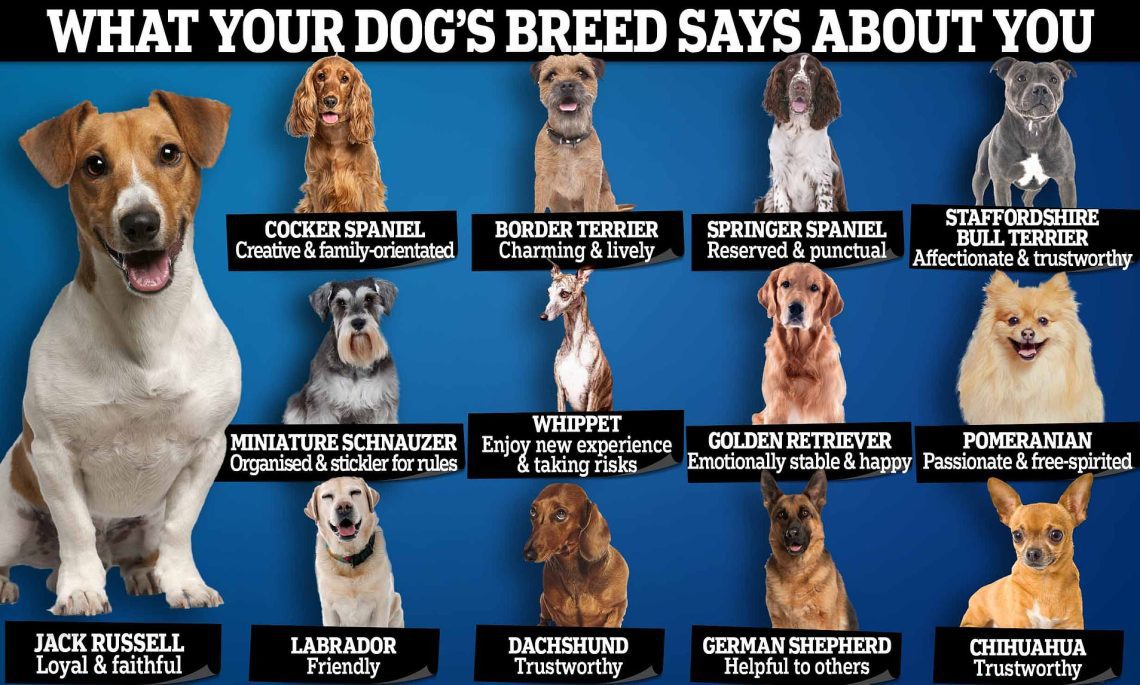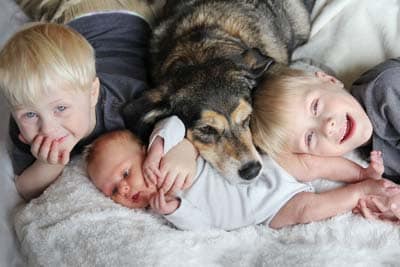
Dog breed personalities: choose the dog that suits you best
Character matters most. This applies to both people and animals. If you’re thinking about getting a dog, you probably like a certain breed. But is it right for you? The nature of a dog plays an important role in understanding whether it will suit you and your lifestyle. Choosing a breed will become much easier if you know what traits and personality traits suit your needs. The following tips will help you find the right pet for your personality and lifestyle.
Contents
Pay attention to your home and family
 Are you single or do you have a large family? Do you have toddlers, other pets, or grown children? In addition to your family, you also need to evaluate your home. Do you have an apartment or a private house? A large fenced yard or a small, grassy area? Is there a great walking area in the neighborhood or do you have to transfer to the dog park? All of these factors can influence the choice of dog breed and size.
Are you single or do you have a large family? Do you have toddlers, other pets, or grown children? In addition to your family, you also need to evaluate your home. Do you have an apartment or a private house? A large fenced yard or a small, grassy area? Is there a great walking area in the neighborhood or do you have to transfer to the dog park? All of these factors can influence the choice of dog breed and size.
These questions will help you narrow down your search for a pet. For example, if you live in an apartment and don’t have a park or walk nearby, you might want to consider a small dog that doesn’t need a lot of space to play. If you have small children, miniature breeds should be avoided as they are very fragile and become nervous around children. In that case, consider a larger breed dog that loves children. And if you like very large dogs, such as the Great Dane or St. Bernard, you will need to make sure that you have enough space in the house or in the yard to comfortably accommodate such a large animal.
Analyze your lifestyle
To choose the right breed, you need to analyze your life well. Do you work late or travel often? Do you like to discover something new or are you a homebody?
If you have an active lifestyle, it makes sense to look for a dog that will live in the same rhythm with you. Terriers and sporting dog breeds love to move around a lot. On the other hand, if you prefer to spend your weekends on the couch, the active breed is not for you. If you spend a lot of time away from home and can’t take your puppy with you, you should look into breeds that are more tolerant of being alone.
Consider why you need a dog
It will be very helpful to understand what you expect from a dog. Do you just need company or do you need a watchdog? Do you need a little buddy to curl up in your lap or a big buddy to keep you company on your runs? Some pet owners are looking for a babysitter dog that can protect children while they play, while others are looking for a new best friend for their family. Being honest with yourself about why you need a dog and what you and your family want from it will be a big step towards making it easier to find the right pet for your family.
Consider your time and your budget
Be honest about how much time and money you are willing to spend on a dog. Do not forget that if you get her, it will be tantamount to adopting a very small child who will forever remain small. In addition to proper nutrition, bedding, toys, and various other items, you will need to take care of your pet’s coat, provide her with conditions for proper physical activity, and also monitor her health. Some dogs need more, others less. For example, as much as you love a Maltese puppy, if you don’t have the time and finances for regular brushing and trimming, this dog is not for you. And some breeds have an unfortunate genetic predisposition to diseases that can be time-consuming and costly to treat. Determine in advance what you are willing to sacrifice to care for your pet throughout his life.
Adult dogs versus puppies
 Another important characteristic to think about is age. Many people choose to get puppies for many reasons, not the least of which is that they are very cute and impossible to resist. Some people believe that if you raise a dog from a puppy, it will create a stronger bond between you. But training and caring for puppies can be hard work, and their ability to test your patience knows no bounds. On the other hand, older dogs are already toilet trained and prepared for life with people, not to mention the fact that the period of “destruction” and “chewing everything that catches your eye” during teething is long gone. Usually, older animals have no problem forming strong bonds with a new family, unless they have had traumas in the past (which can also be dealt with).
Another important characteristic to think about is age. Many people choose to get puppies for many reasons, not the least of which is that they are very cute and impossible to resist. Some people believe that if you raise a dog from a puppy, it will create a stronger bond between you. But training and caring for puppies can be hard work, and their ability to test your patience knows no bounds. On the other hand, older dogs are already toilet trained and prepared for life with people, not to mention the fact that the period of “destruction” and “chewing everything that catches your eye” during teething is long gone. Usually, older animals have no problem forming strong bonds with a new family, unless they have had traumas in the past (which can also be dealt with).
Choose the type of breed
Once you’ve made a list of your ideal dog’s personality traits, it’s time to learn about dog breeds and their types. Start with a local dog shelter, where you can find different breeds of dogs, which you can ask the staff of the shelter in detail to find out more. There are also many articles with information about different breeds that can help you in your search, you can find on HillsPet.ru and on the website of the American Kennel Club. If you don’t know where to start, you can decide on a group of dogs. For example, the breeds of the Terrier group tend to be self-confident and energetic, and their training requires a steady hand and a lot of patience. Working breed dogs are smart, relatively easy to train, and they will be just happy if there is something for them to do. It might be easier to start the selection with a group.
Once you’ve narrowed down your search, it’s a good idea to consult with people who have experience with the breeds you’re interested in. If you don’t personally know any of these people, look on the Internet: there are many forums and communities dedicated to individual breeds. Consult with your veterinarian, who can not only enlighten you about the temperament of a particular breed, but also tell you if your chosen breeds have a predisposition to any diseases that you need to know about. He can also recommend a good shelter or nursery for you. Keep in mind that there are many breed-specific shelters out there, and you don’t have to spend a lot of money to get a purebred puppy.
Purebred dogs versus mixed breed dogs
Most shelters are easy to find purebred dogs in need of love and a home, but more likely you will find a huge selection of mixed breed animals there. You might think that the temperament of a mixed breed dog is harder to predict, but if you know what breeds make up the mix, it’s not that hard. Typically, mixed breeds have a balance of the predominant traits of their parents. Often their temperament is somewhere in between the extreme extremes of purebred dogs. Also, according to the Humane Society of the United States, mixed-breed dogs are less prone to genetic defects, which are sometimes the result of overbreeding their purebred counterparts. If you are considering adopting a pet from a shelter, talk to a shelter staff member or volunteer about the traits you are looking for. He or she will help you find the best option.
After reviewing all these questions, you might think that finding a dog with the right temperament is almost as difficult as finding your soul mate. But this decision must be taken seriously. In the end, the dog will become an integral part of your life for the next 10-15 years. You have to make sure that you are right for each other.





